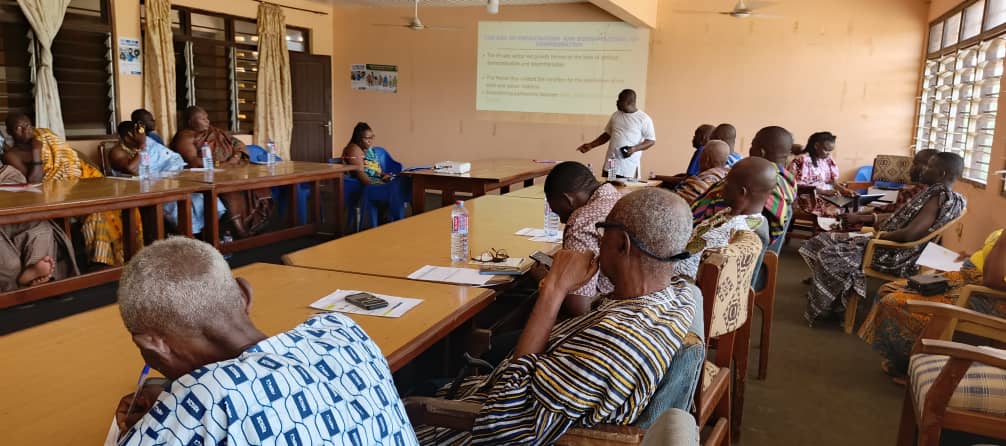By Ewoenam Kpodo
Tokor (VR), Nov. 23, GNA – Traditional leaders, from Somé Traditional Area in Ketu South have pledged their support for the implementation of West Africa Coastal Areas Resilience Investment Project (WACA ResIP 2) to build resilience of their coastline.
The Government of Ghana is partnering with the World Bank and PROBLUE to implement the WACA ResIP 2 over a five-year period (2023-2027) aimed to address coastal erosion and flooding, pollution, restore coastal ecosystems especially mangroves and secure livelihoods.
Beneficiaries are people living along the coast and depending on it for their livelihoods and people living in marginal lands, at immediate risk of coastal erosion, flooding, and pollution.
It is being implemented by the Ministry of Environment, Science, Technology, and Innovation in collaboration with key project implementing partners including the Ministry of Works and Housing, Ministry of Lands and Natural Resources, Civil Society Organisations (CSOs) and Africa Centre of Excellence on Coastal Resilience.
The second WACA project, benefitting Ghana (with both components of a grant and a loan totaling 155 million dollars), The Gambia, and Guinea-Bissau to support them in physical coastal protection using a combination of nature-based solutions and grey infrastructure to protect economic and livelihood assets from coastal erosion, flooding and pollution, was an expansion of the WACA Programme which benefitted six West African countries like Benin and Togo.
The chiefs, during an engagement with Coastal CSOs Forum (CCF), a partner organisation implementing the WACA project, expressed their readiness for participation and ownership of the project saying, they believed that the success of the WACA ResIP 2 hinged on collective action.
Torgbiga Adama III, Paramount Chief of Somé Traditional Area lauded CCF for organising the meeting to clarify issues of the project to them as custodians of the land, culture, and traditions of their communities.
He said the engagement with them was important as it would help them make contributions and monitor the project for a successful implementation, so the objectives including the restoration of coastlines, natural resource management, and investments in local economies could be realised.
Torgbi Baku V, Chief of Denu said the interaction was productive and that he was ready to get actively involved in the process to benefit the coastal community.
“I’ve been to Benin and seen the WACA project and there are lessons we can learn from there. There are good and bad examples from there. For example, the project did not consider smallholder fishermen whose activities include pulling of nets and it’s affecting them because they cannot operate. We will as traditional authorities make these inputs to ensure the preservation of the livelihoods of our fishers.”
Torgbi Tsrabi, Dutor of Hedzranawo said, “With these periodic episodes of coastal erosion, flooding and storm surges threatening the lives and property of our coastal communities, we can only support the implementation WACA for the needed relief.”

Mr Kofi Agbogah, who chairs CCF in a presentation, gave an overview of the WACA programme, its objectives while managing expectations of the project and as well, clarifying dissonance about it.
Mr Noble Wadzah, Coordinator of CCF in an interview with Ghana News Agency said there were plans to engage chiefs from the other two ecologically sensitive districts of the region; Anloga and Keta before proceeding to Greater Accra Region after which other community engagements would follow in both regions, identified as the main hotspots of the country’s four coastal regions for the first phase of the Ghana WACA intervention.
“The essence of the CCF efforts is to streamline understanding of the WACA project into segments of society to ensure accountability during actual implementation of the project.”
GNA